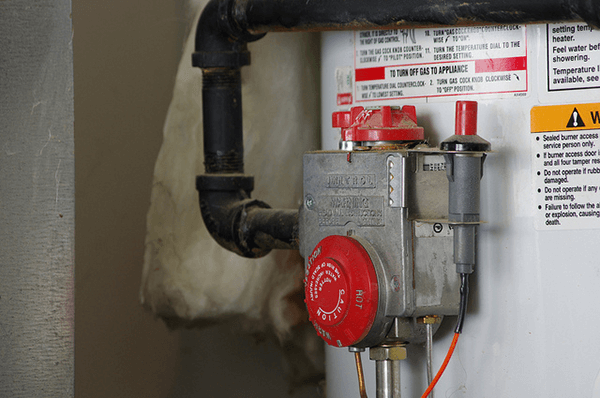Water Heaters: Tanks or No Tanks?
If your home’s water heater has seen its final days, finding a replacement unit can be daunting. Both traditional tank and tankless water heaters can work well in homes, but each type has its own set of benefits and disadvantages. Learn more about how both types of water heaters work in the home.
Traditional Tank Water Heaters Have Fewer Up-Front Costs
 Most standard residential water heaters come with tanks that hold between 30 and 75 gallons of hot water. The insulated tank keeps hot water warm, and maintains the temperature at predetermined levels. Typically, as hot water is used for daily household applications, fresh water is introduced into the tank and a new heating cycle is triggered. In other words, hot water remains on standby all the time so that when a tap opens, hot water is readily available.
Most standard residential water heaters come with tanks that hold between 30 and 75 gallons of hot water. The insulated tank keeps hot water warm, and maintains the temperature at predetermined levels. Typically, as hot water is used for daily household applications, fresh water is introduced into the tank and a new heating cycle is triggered. In other words, hot water remains on standby all the time so that when a tap opens, hot water is readily available.
Traditional tank water heaters typically cost less to install than their tankless counterparts, as most tankless equipment, by their nature, are more costly units. In addition, since you probably already have a standard tank water heater, your installation contractor may not have to make significant changes in piping, fittings, ventilation parts, and other components to accommodate a new similar unit.
If you’re looking for the most budget-friendly option, a tank-type water heater might be the more practical choice.
Tankless Water Heaters Offer Increased Energy Efficiency
A tankless water heater doesn’t keep a reserve of hot water. Instead, these units heat water on demand. The U.S. Department of Energy reports that many tankless water heaters are more energy-efficient than traditional tank units. The amount of energy savings depends on how much water you use, and other variables, but the savings can range from 8 to 34 percent in fuel cost.
Comparing standard tanks with upgrading to a tankless unit, whether or not you break even between the up-front cost and projected savings depends on how long the tankless water heater lasts, along with usage pattern considerations. Keep in mind that you might also find rebates and incentives to help trim the cost of a tankless unit, so do your research before you make a purchase.
Both Units Offer Benefits
The best hot water heater for your home and family depends on your personal needs, along with specifics relating to your installation. For instance, in the Denver and Boulder areas, some homes may be much better equipped to accommodate an existing type of system, as opposed to trying to fit a ‘square peg into a round hole,’ requiring extensive, costly modifications to make a desired change. Each home and installation is different, and sometimes it makes the most sense to embrace the status quo.
Properly-sized tankless water heaters typically offer faster and longer access to domestic hot water. Since you don’t have to rely on a tank’s volume capacity, large families or homes with significant hot water loads (large tubs, frequent laundry or dishwasher use, etc.) may greatly benefit from tankless units. That’s where proper sizing by a knowledgeable, experienced contractor can make all the difference in the world.
Additionally, a properly maintained tankless unit might last longer, as well as take up less room in your home. Most tankless units are hung on an exterior wall in the mechanical area, as opposed to standing on the floor. The smaller footprint may benefit families who live in smaller quarters, with useable square footage at a premium. The increased longevity of a well-maintained tankless heater can potentially reduce the total cost of ownership over the life of the system. However, tank-type water heaters advance in engineering each year, and life expectancy varies by model and family habits.
Both standard and tankless water heaters can be viable hot water options for your home. The key in deciding how to proceed is in obtaining expert advice before making an investment in a new system. Consult a plumbing and heating contractor who is willing inspect your house and determine your home’s specific needs, and then make recommendations based on what they see and what you desire.




